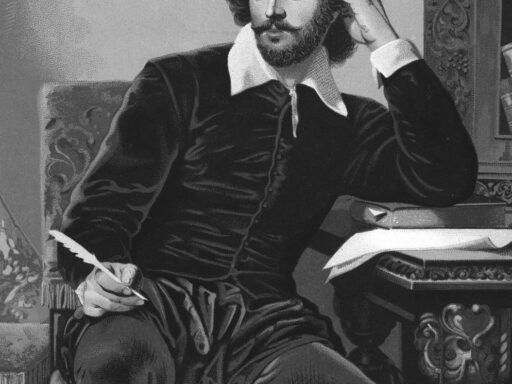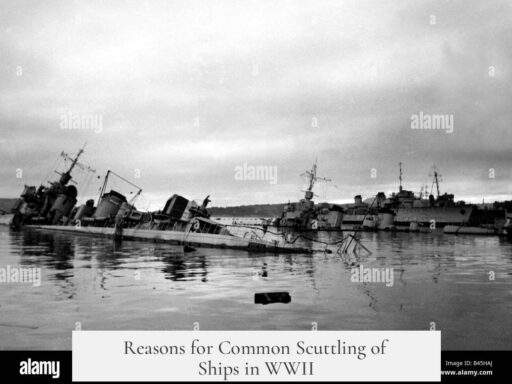Martin Luther succeeded where John Wycliffe and Jan Hus failed because of key advantages in technology and political support. The development of the printing press allowed Luther’s ideas to spread rapidly and widely, reaching vastly more people than the earlier reformers could. Additionally, Luther benefited from strong protection by influential secular rulers, unlike Hus and Wycliffe. These factors combined to give Luther a decisive edge in challenging the established church.

The printing technology of the early 16th century transformed information sharing. Luther’s 95 Theses were printed by the thousands within months of their release. This is in stark contrast to previous reformers like Wycliffe and Hus, whose works or sermons reached limited audiences due to manual copying or being restricted to church congregations. Copies of Luther’s work spread across key German cities such as Wittenburg, Nuremburg, Basel, and Leipzig almost immediately.
Besides wide circulation, printed books were difficult to fully suppress. Authorities could seize copies at the source but could not remove every copy once distributed. For Wycliffe and Hus, the lack of such technology contributed to their limited impact; manuscripts were rare and easily destroyed. For example, the Cathar movement’s writings mostly did not survive because their texts were scarce and subject to destruction, and Arnold of Brescia’s works were entirely lost after his execution. Printing ensured Luther’s reform ideas remained accessible despite church opposition.

Pivotal to Luther’s endurance was his relationship with the powerful Prince Frederick of Saxony. Frederick was an imperial elector with enough influence to defy papal and imperial commands. He guaranteed Luther safe passage to the Diet of Worms in 1521 and covertly hid Luther in a castle to protect him from retaliation after the trial. This political sanctuary gave Luther time and security to continue his reform work.
In contrast, Jan Hus, though initially supported by King Wenceslaus of Bohemia, lacked protection when summoned to the Council of Constance held in southern Germany. Wenceslaus’s influence did not extend into this region. Although Hus was promised safe conduct, the guarantee was ignored upon his arrival. Hus was arrested, forced to recant, and ultimately burned at the stake. This betrayal undermined his movement and prevented sustained reform momentum.

The political fragmentation in Germany worked to Luther’s advantage. Local rulers had considerable autonomy from the Holy Roman Emperor and the pope. Many were politically motivated to limit church power and increase their own authority. Supporting Luther aligned with these goals. Meanwhile, the earlier reformers operated in contexts where centralized church authority and local rulers with less independence could enforce strict orthodoxy more effectively.
Luther’s strategic timing also helped. Europe was entering the early modern era, with rising nationalist sentiments and an improving secular governance structure. These shifts allowed rulers to leverage religious dissent for political gain. Luther’s reforms coincided with these trends, enabling greater support than the religious critiques of Wycliffe or Hus, which emerged in more restrictive medieval environments.

Summarizing the reasons for Luther’s success compared to Wycliffe and Hus:
- Printing press enabled mass, rapid dissemination of Luther’s ideas.
- Printed texts resisted complete censorship and destruction.
- Powerful political patron (Prince Frederick) provided protection and shelter.
- Political fragmentation allowed secular rulers to support reform acts against the church.
- Earlier reformers lacked comparable political backing and suffered from limited technology.
- Promises of safe conduct were often broken, exemplified by Hus’s martyrdom at Constance.
The earlier reformers’ failure illustrates the challenges of confronting a centuries-old institution without broad dissemination tools or strong secular allies. Luther’s timing, sponsorship, and the ability to circulate printed materials created conditions for a revolutionary religious movement.

| Aspect | John Wycliffe & Jan Hus | Martin Luther |
|---|---|---|
| Technology | Manuscripts; slow handwritten copies, rare dissemination | Printing press; rapid, mass distribution of texts |
| Political Support | Limited or regional; Hus’s ruler powerless beyond Bohemia | Strong protection from Frederick, a powerful Saxon prince |
| Consequences | Texts easily destroyed; Hus executed; Wycliffe’s works suppressed | Protected from execution; works widely available; reformation gained traction |
| Impact | Limited regional influence; movement suppressed | Widespread reform; challenge to Catholic Church throughout Europe |
Luther’s success proves that challenging a dominant power requires both effective communication tools and protective alliances. Without printing or political backers, even compelling ideas fail to reach or survive the public arena. Luther’s story highlights the interplay between technology, politics, and religious reform.
- Printing technology allowed Luther’s ideas to spread faster and farther.
- Political protection shielded Luther from execution and suppression.
- Earlier reformers lacked printing and strong political safeguarding.
- Governance shifts in the 16th century favored reformist alliances.
- Promises of safe passage for Hus were broken, unlike for Luther.
Why Did Martin Luther Succeed Where John Wycliffe and Jan Hus Failed?

Martin Luther succeeded where John Wycliffe and Jan Hus failed because of a revolutionary invention and a shrewd political environment. Simply put, Luther had the printing press on his side and powerful rulers protecting him. These advantages allowed his ideas to spread like wildfire and survive fierce opposition.
But let’s unpack this intriguing historical puzzle step-by-step. What made Luther’s Reformation catch fire, while earlier reform movements sputtered?

The Printing Press: Luther’s Megaphone to Europe
Imagine trying to spread your ideas, but you can only whisper. That’s the challenge John Wycliffe and Jan Hus faced. They lived centuries before the printing press could unleash words across the continent.
Wycliffe wrote revolutionary texts, but books had to be copied by hand. One person could read at a time. Hus delivered fiery sermons, but only people sitting inside that church heard them. Reaching thousands? Nearly impossible.
Enter Johannes Gutenberg’s printing press, a true game-changer. It spread Luther’s 95 Theses at lightning speed. Thousands of copies circulated within months after they dropped in 1517. And these weren’t just expensive, rare books—Luther’s material was affordable and quickly replicated.
Printing was as world-shaking then as the internet feels today. Ideas zipped through Wittenberg, Nuremburg, Basel, and Leipzig, reaching people far beyond local borders. The Theses swiftly appeared not only in Latin but also in German—making them accessible to the common folk. Imagine if the internet had gone down during the Arab Spring. Without printing, Luther’s message would’ve been stuck in a single parish.
Try banning a viral video today. Tough, right? The same applied back then. Authorities seized some printed copies, but the sheer volume made censorship almost impossible. Earlier reformers like Arnold of Brescia saw their writings destroyed so thoroughly no copies survived. Luther’s works? Safely transmitted everywhere, making suppression a losing game.
Politics: Allies and Safe Havens Matter
Technology wasn’t the only secret sauce. Political luck played a starring role. The early 1500s saw secular rulers gaining strength across Europe. Kings, princes, and dukes eyed the Catholic Church’s vast power. Could rebellious ideas weaken it—and boost their own influence? Absolutely.
Luther lived in Saxony under Prince Frederick the Wise, one of the most influential German imperial electors. Frederick didn’t just nod politely; he actively protected Luther. When Luther faced trial at Worms in 1521, Frederick guaranteed him safe passage—then spirited him away to a secret castle for a year when things heated up.
This level of protection was crucial. Without it, Luther might have faced the same grim fate as Jan Hus.
Let’s look at Hus: a century before Luther, he voiced many identical criticisms of the Church. He, too, had a ruler’s support—King Wenceslaus of Bohemia. But geography was cruel. The council condemning Hus met in southern Germany, far from Wenceslaus’s reach. Hus was promised safety but was betrayed, arrested, and burned at the stake for refusing to recant.
Unlike Hus, Luther benefitted from fragmented German politics where local lords like Frederick wielded substantial influence. These rulers could defy church authority and key imperial figures. This decentralization created a political shield that Luther exploited with finesse.
Why Did Wycliffe and Hus Fail But Luther Didn’t?
- Wycliffe and Hus lacked printing technology. Handwritten copies bounded the reach of their words. Luther’s theses printed thousands of times exploded his message across Europe.
- Political backing was limited or ineffective. Hus’s sovereign had little power outside his realm. Luther’s Frederick was influential and willing to protect him.
- Geopolitical landscape shifted. The early 1500s saw emerging nation-states and rulers eager to assert themselves at the church’s expense.
- Reform ideas resonated in a society ready for change. By Luther’s time, frustrations with church corruption were widespread and urgent.
In short, if you want to topple an institution that has dominated for a millennium, you can’t just shout. You have to broadcast loudly, shield yourself politically, and be ready when the moment is just right.
Lessons from History: Combining Technology and Politics
This deep dive has some surprising modern relevance. It means revolutions or reform movements don’t rest on great ideas alone. Those ideas need delivery systems and strategic alliances.
Think about social movements today. Why do some calls for change go viral worldwide, and others die out on quiet streets? The printing press was Luther’s viral amplifier and Prince Frederick his bodyguard.
So, if you’re a change-maker in any field, ask yourself:
- How can I use modern “printing presses” — social media, video platforms, blogs — to amplify my message?
- Who are my protectors or allies in positions of influence? How can I secure their support?
- Am I striking while the political and social moment is ripe for change?
Martin Luther’s success was no accident. It was technology meeting politics meeting timing—a trio unmatched in Wycliffe’s and Hus’s eras. The printing press gave him a megaphone; Frederick gave him a shield; and the turbulent political climate gave him momentum.
History’s never just about ideas; it’s about the right tools and friends to carry those ideas into the world. Luther’s Reformation shows us that very clearly.




